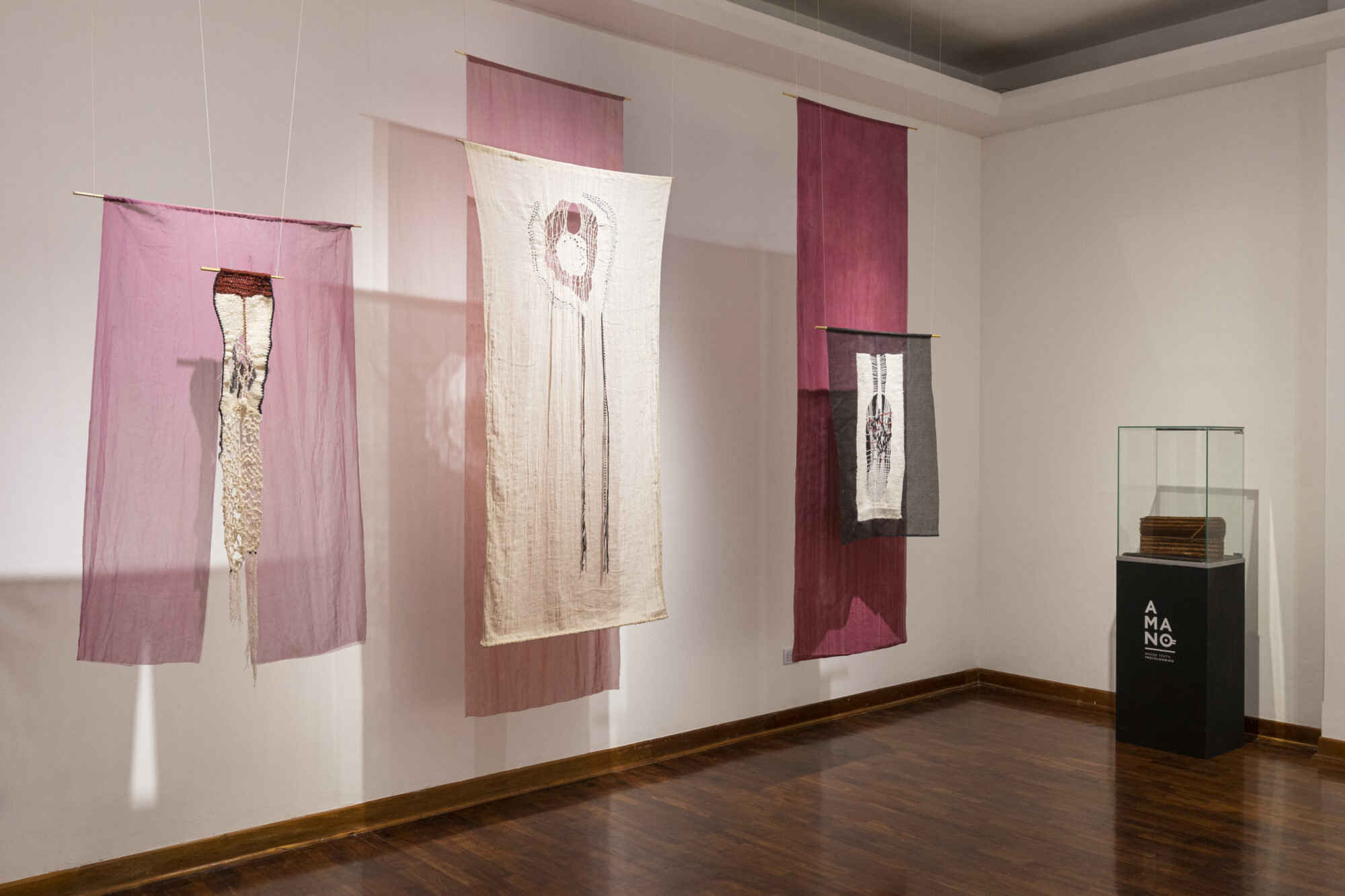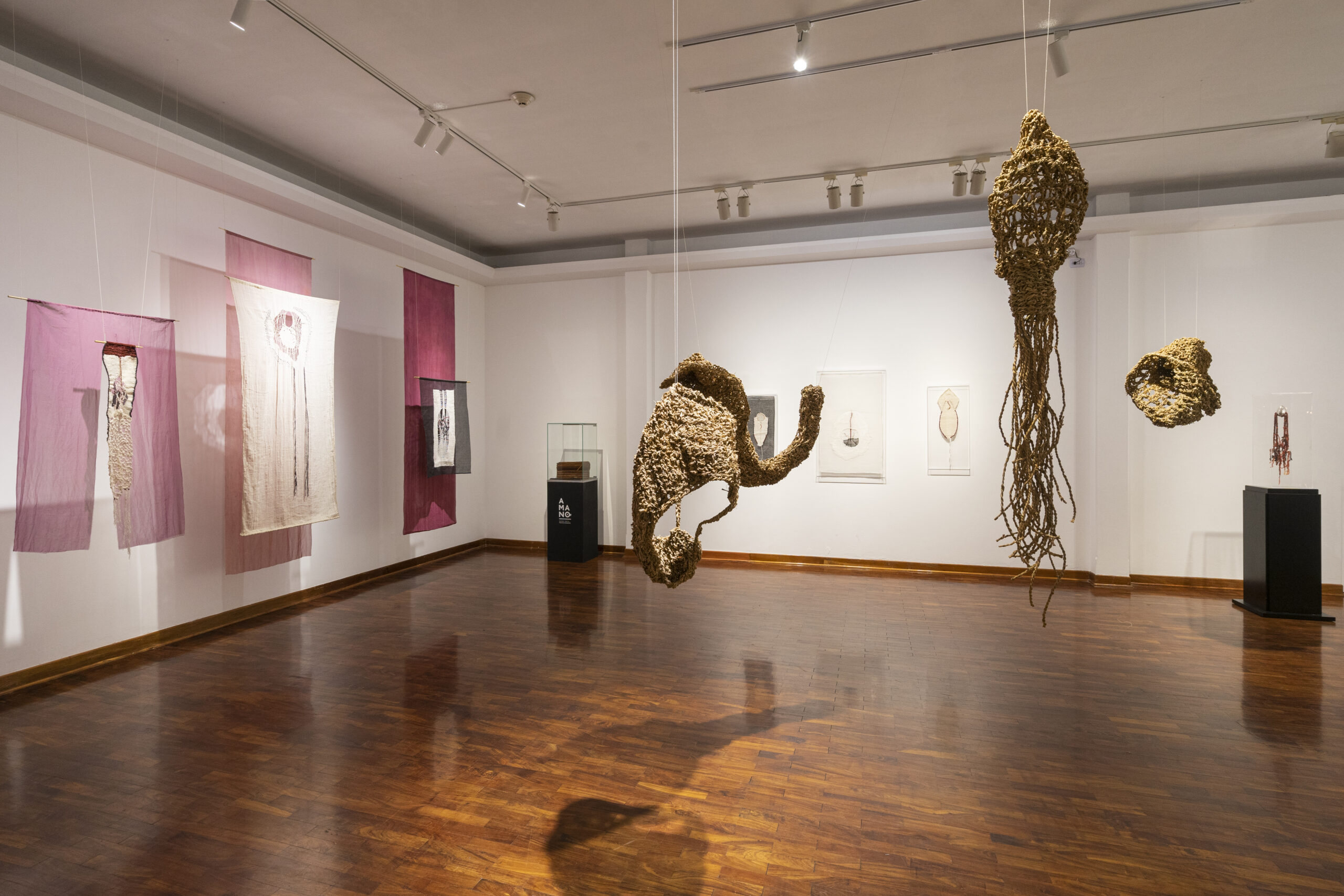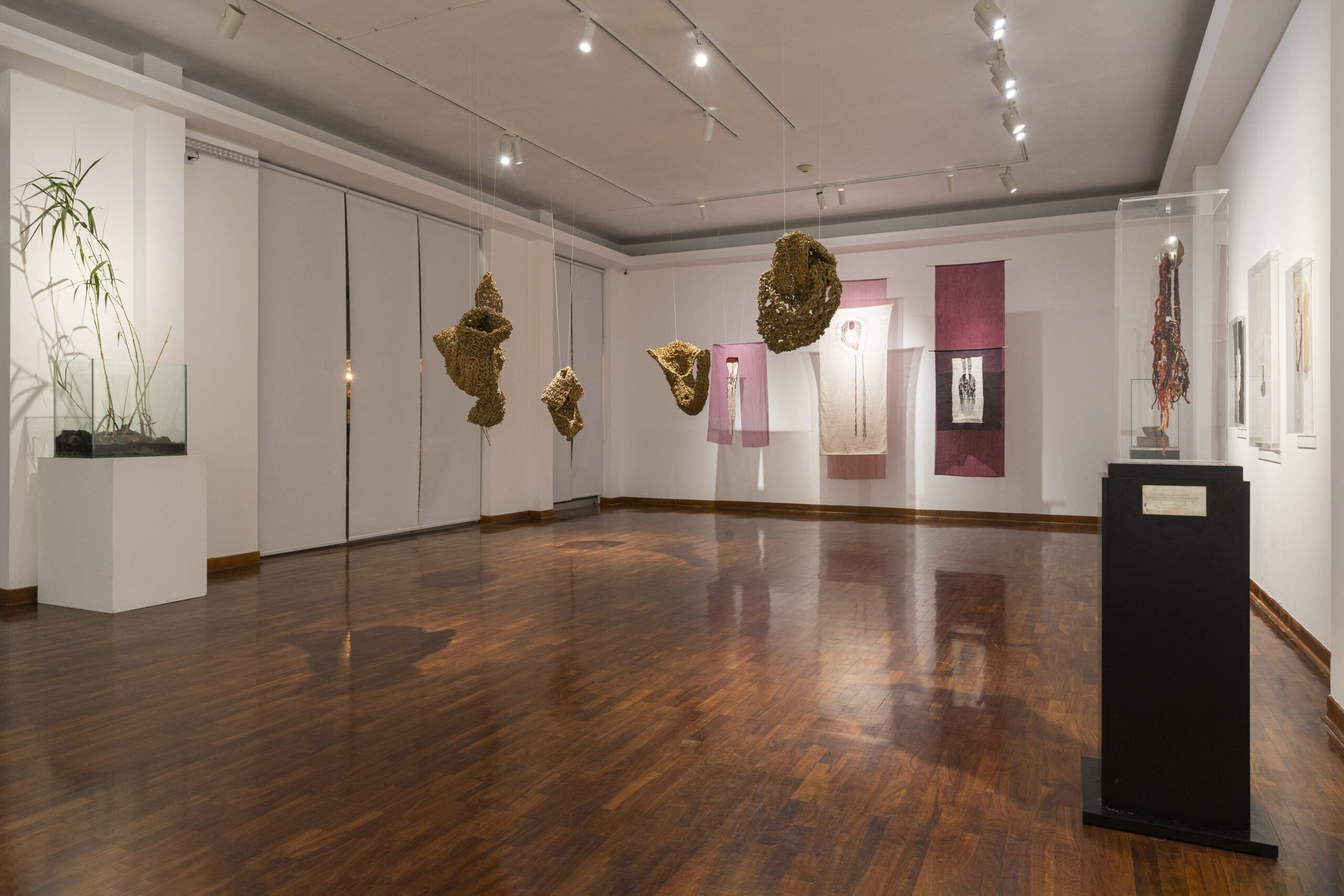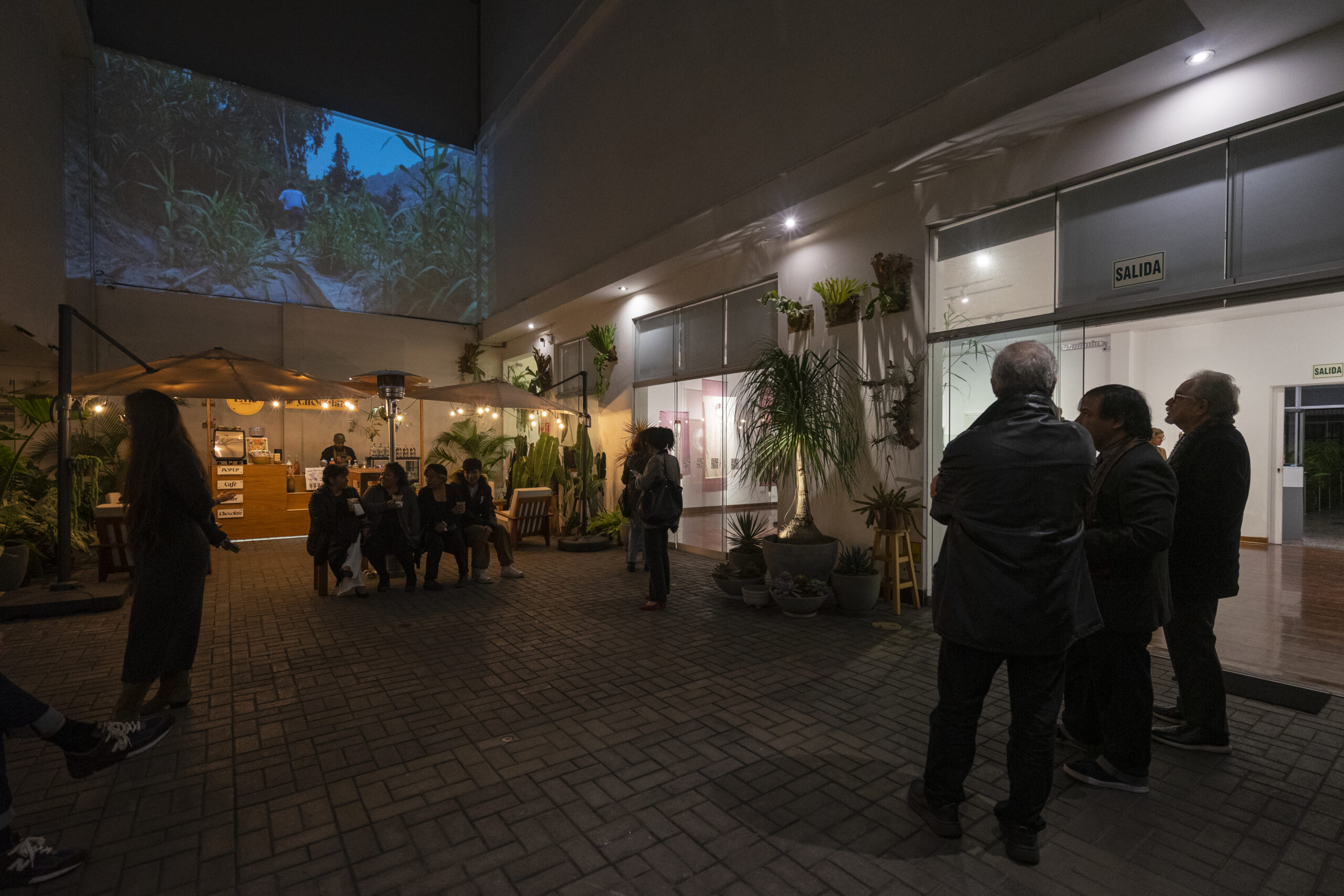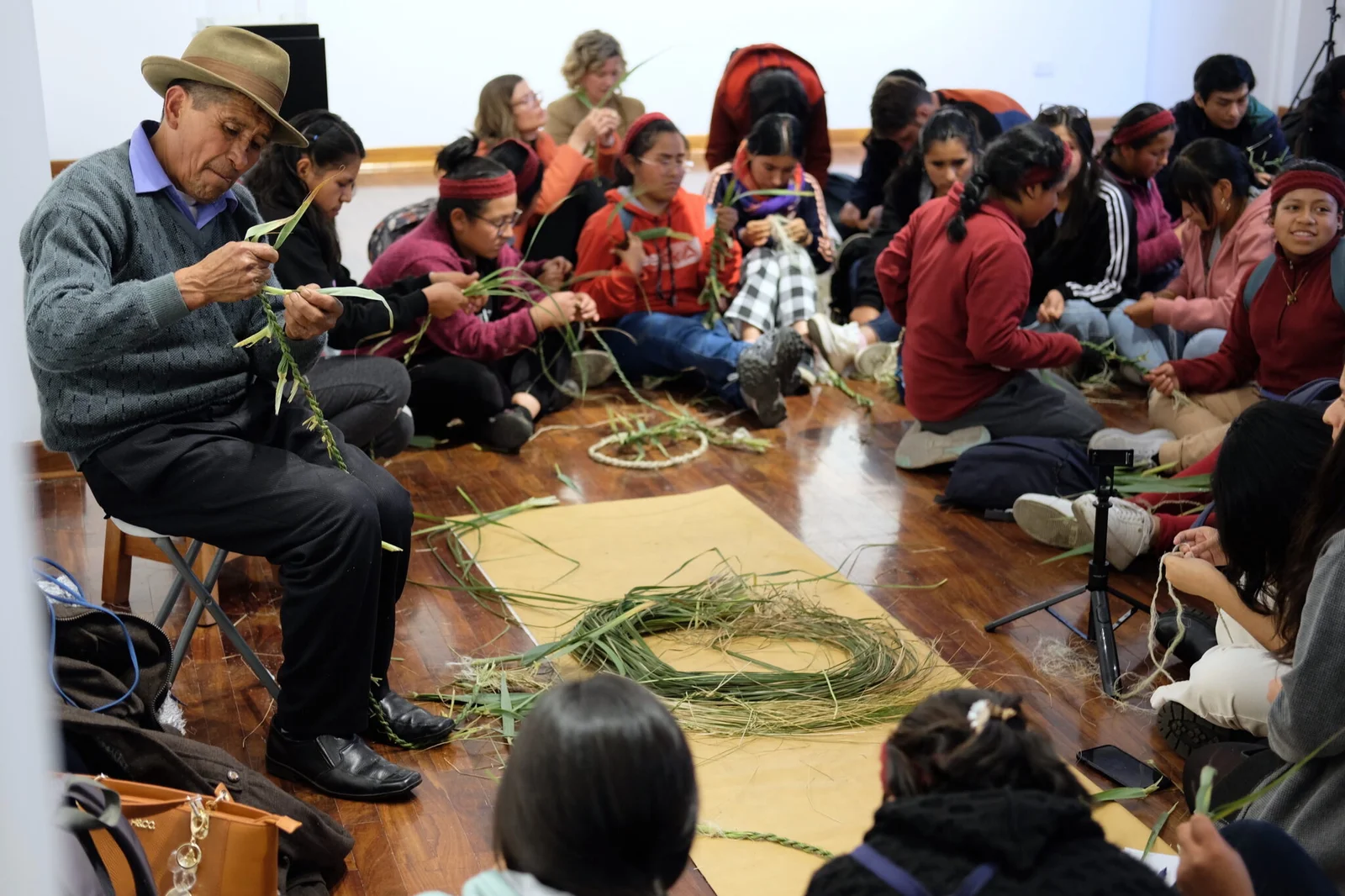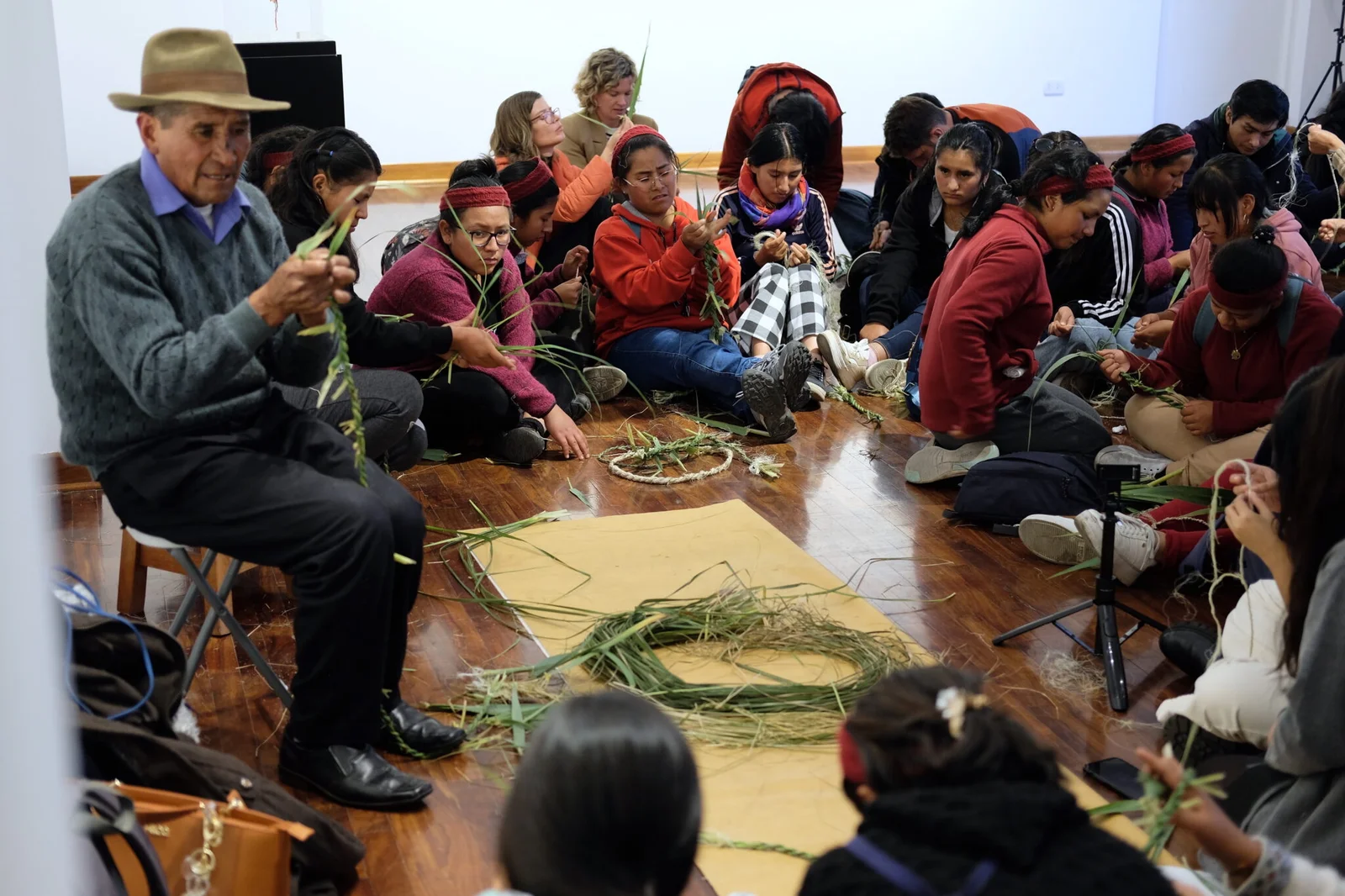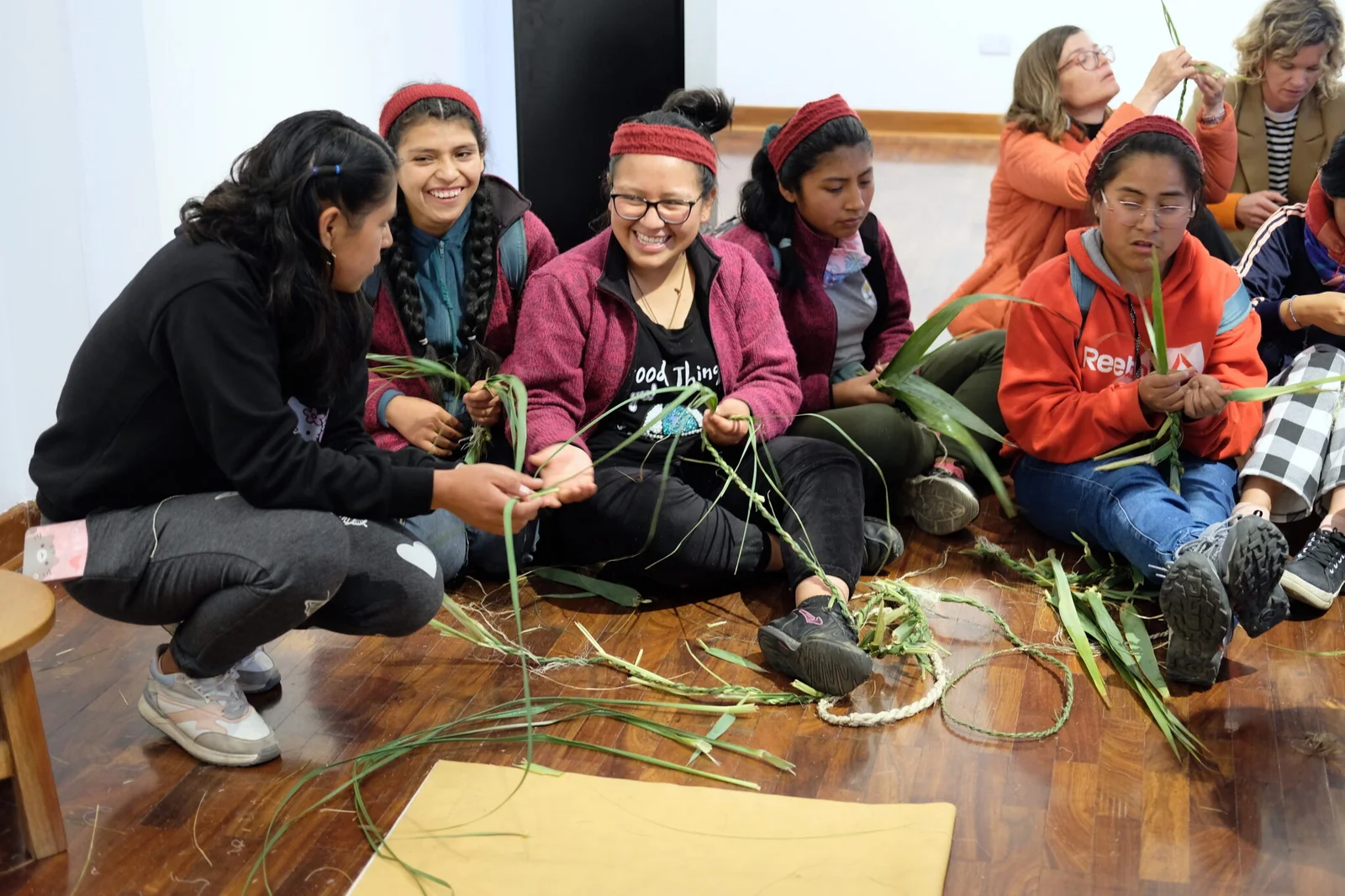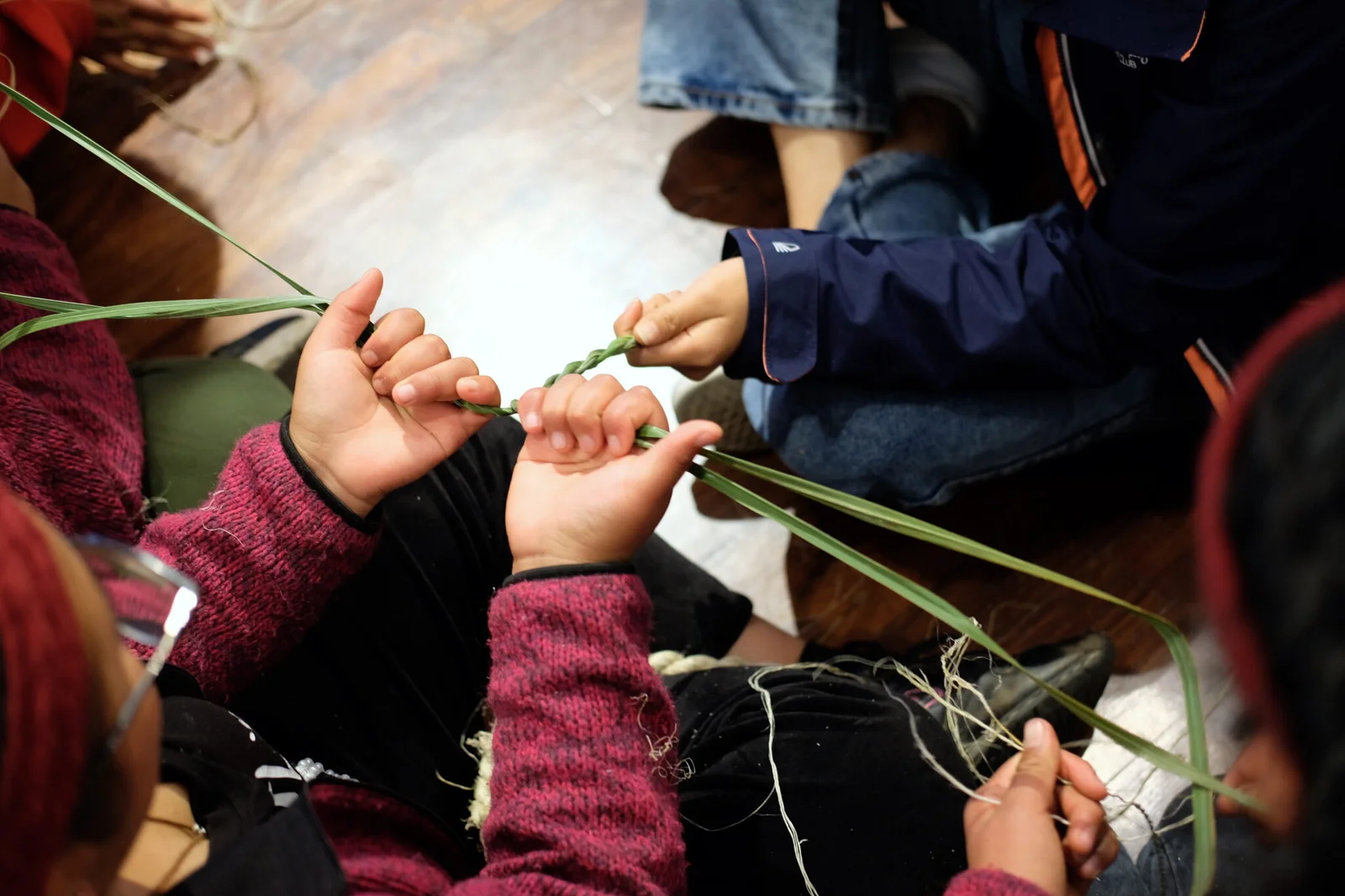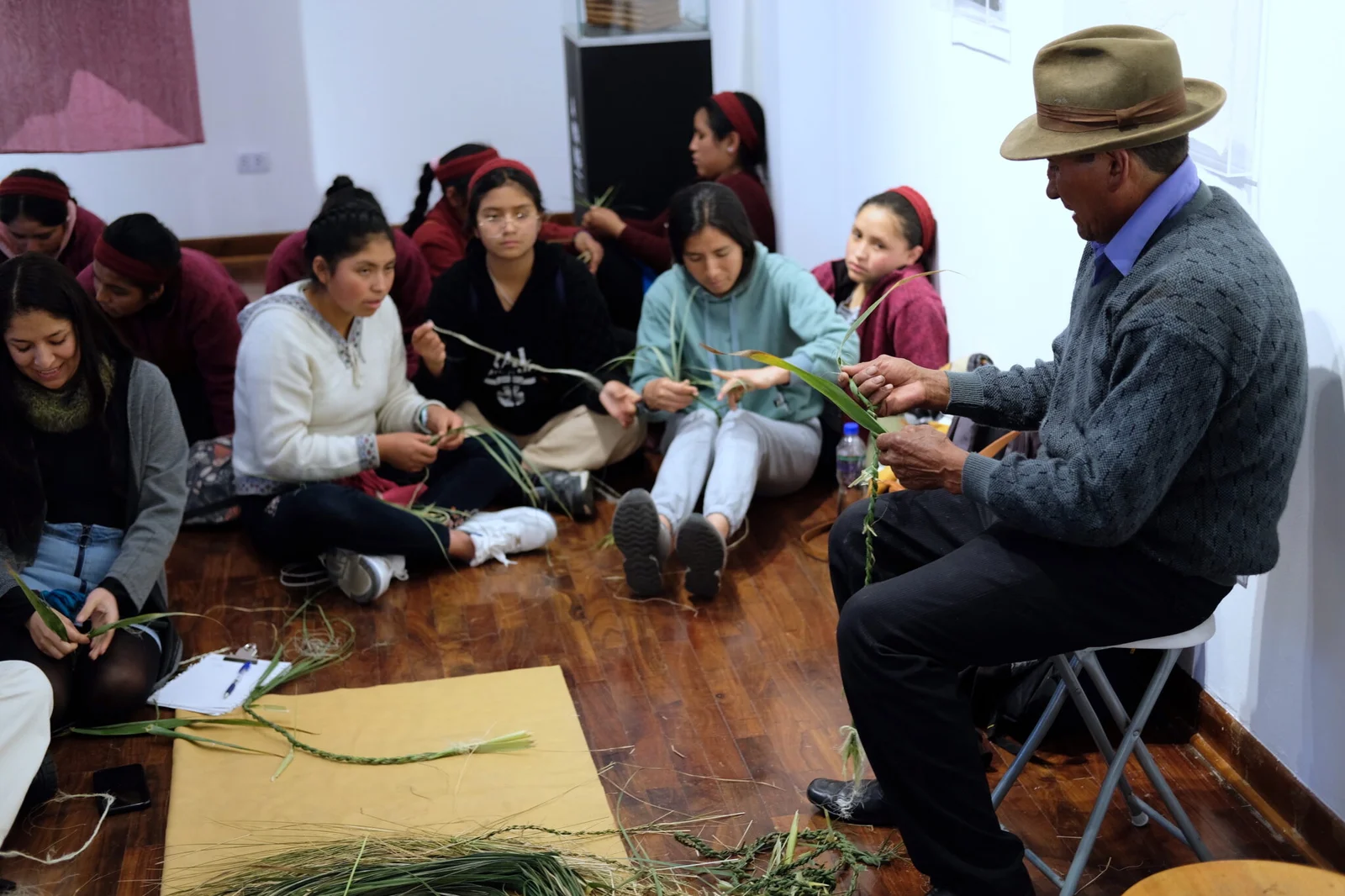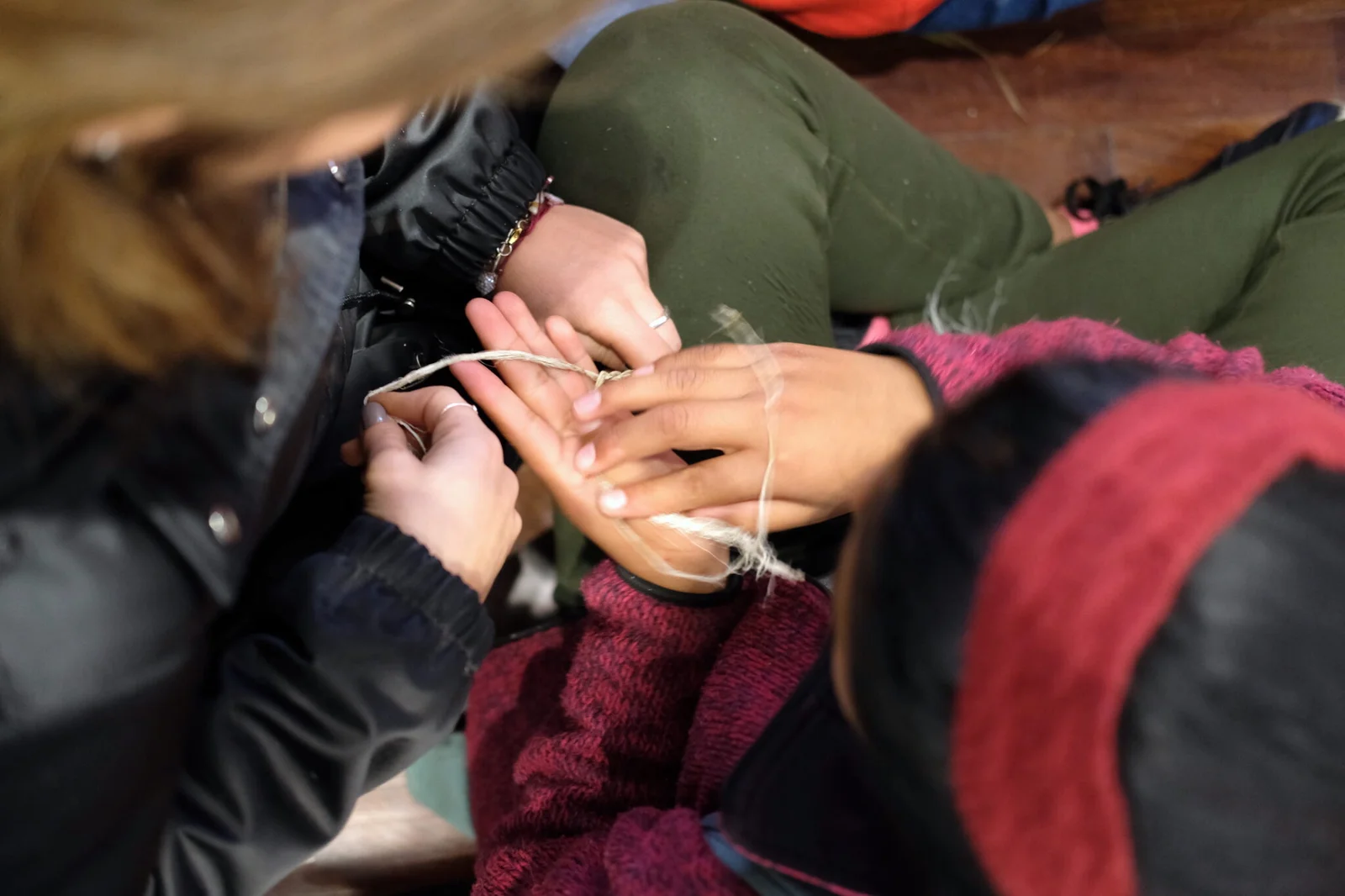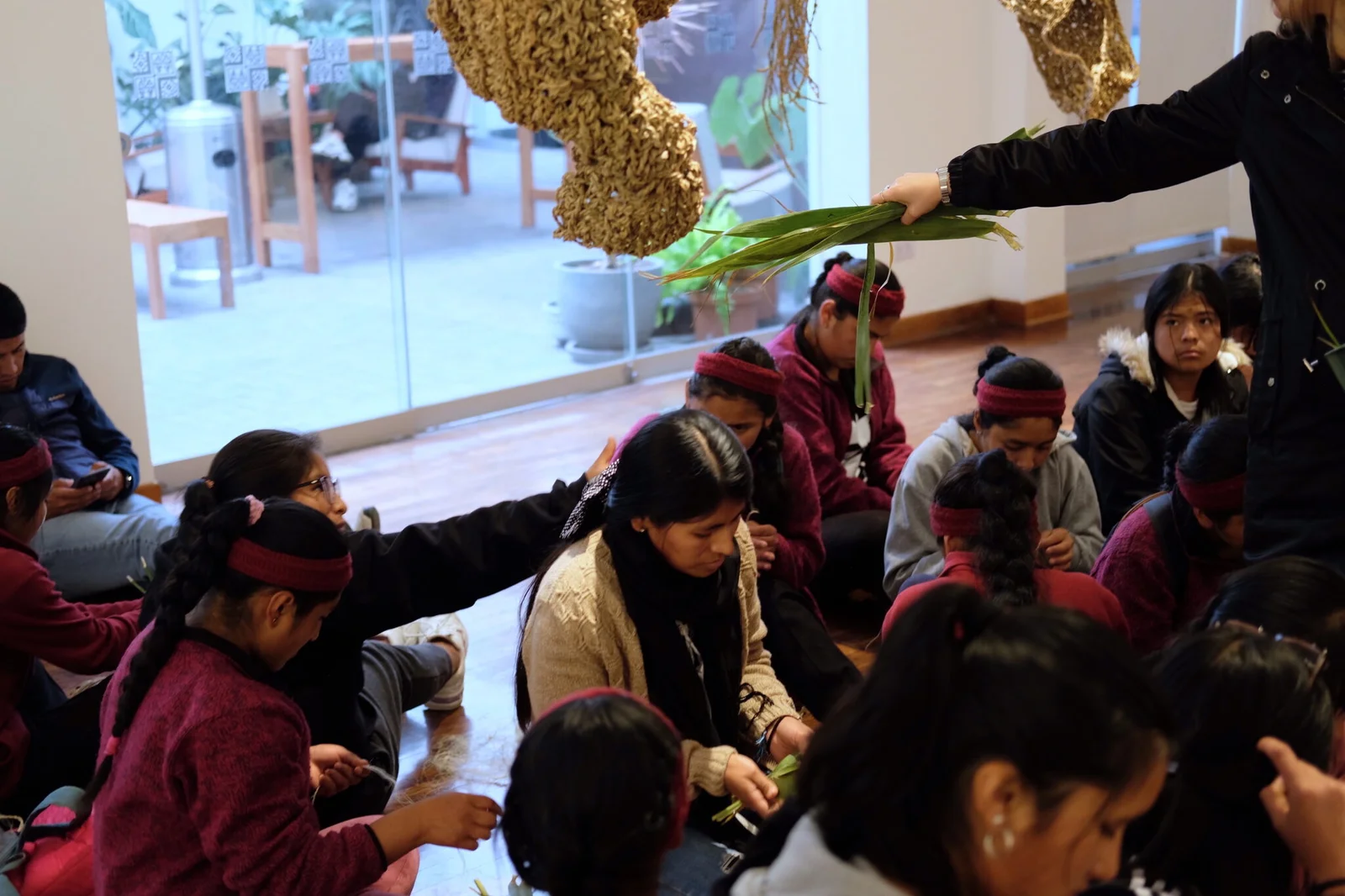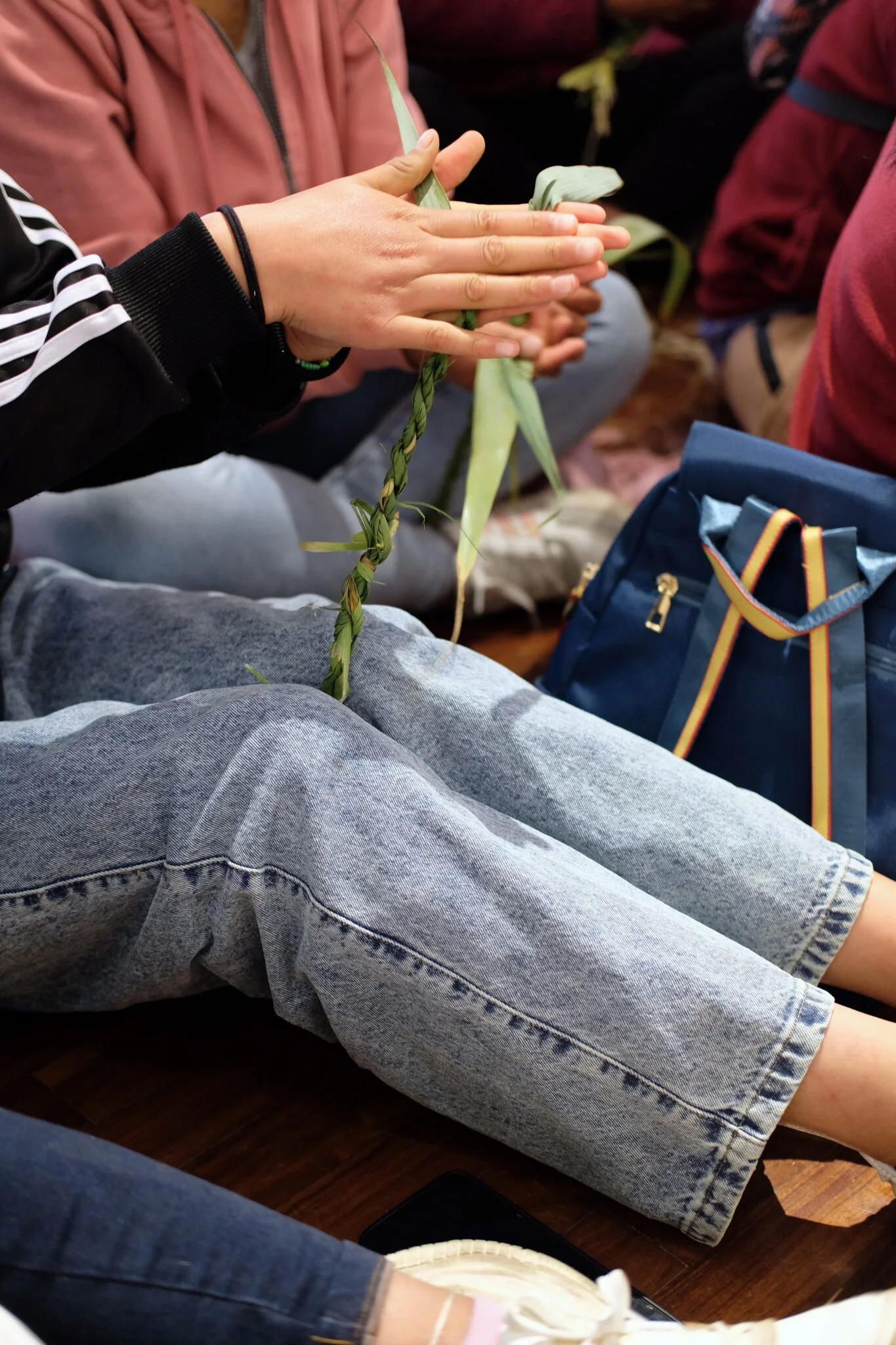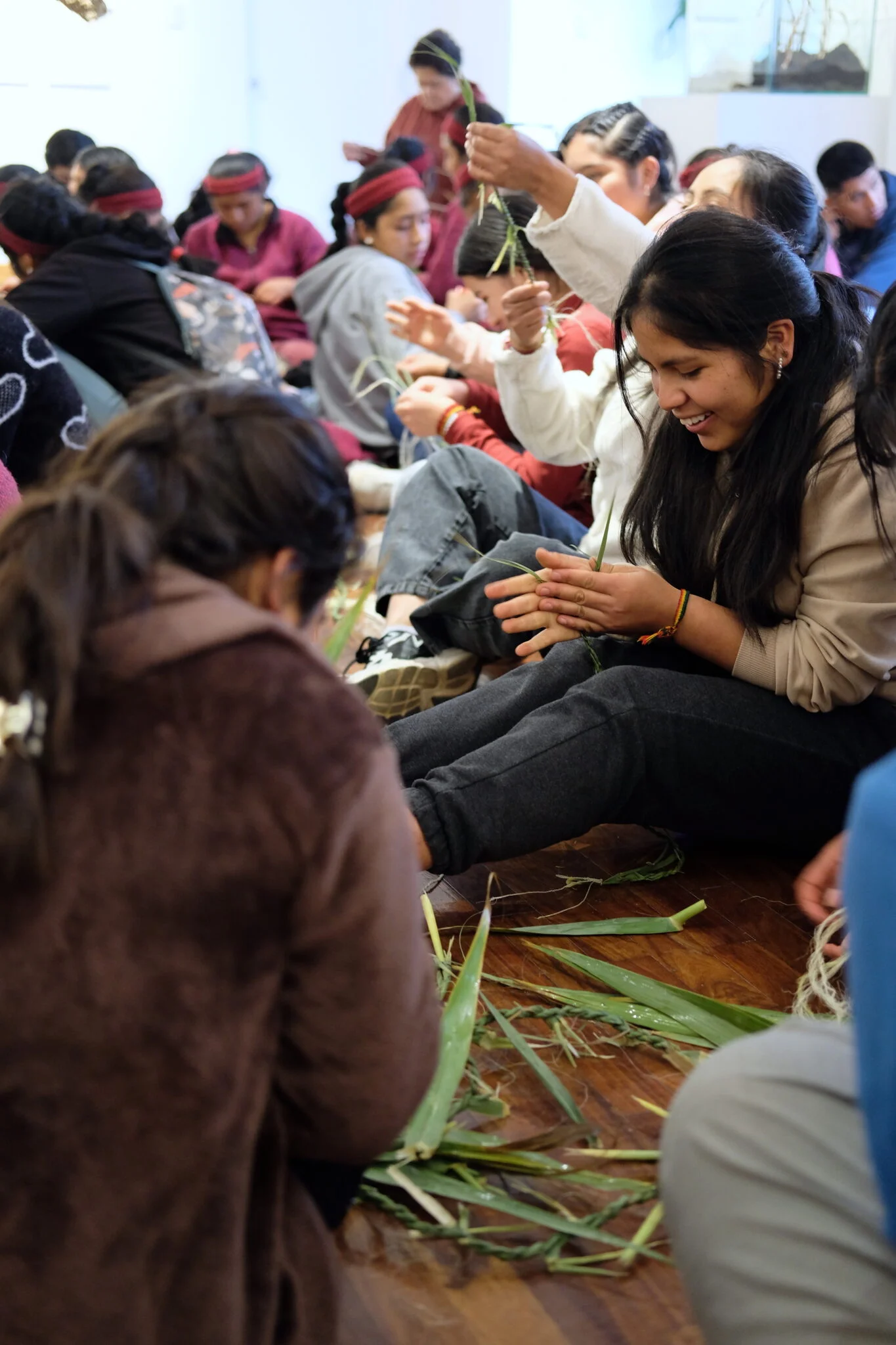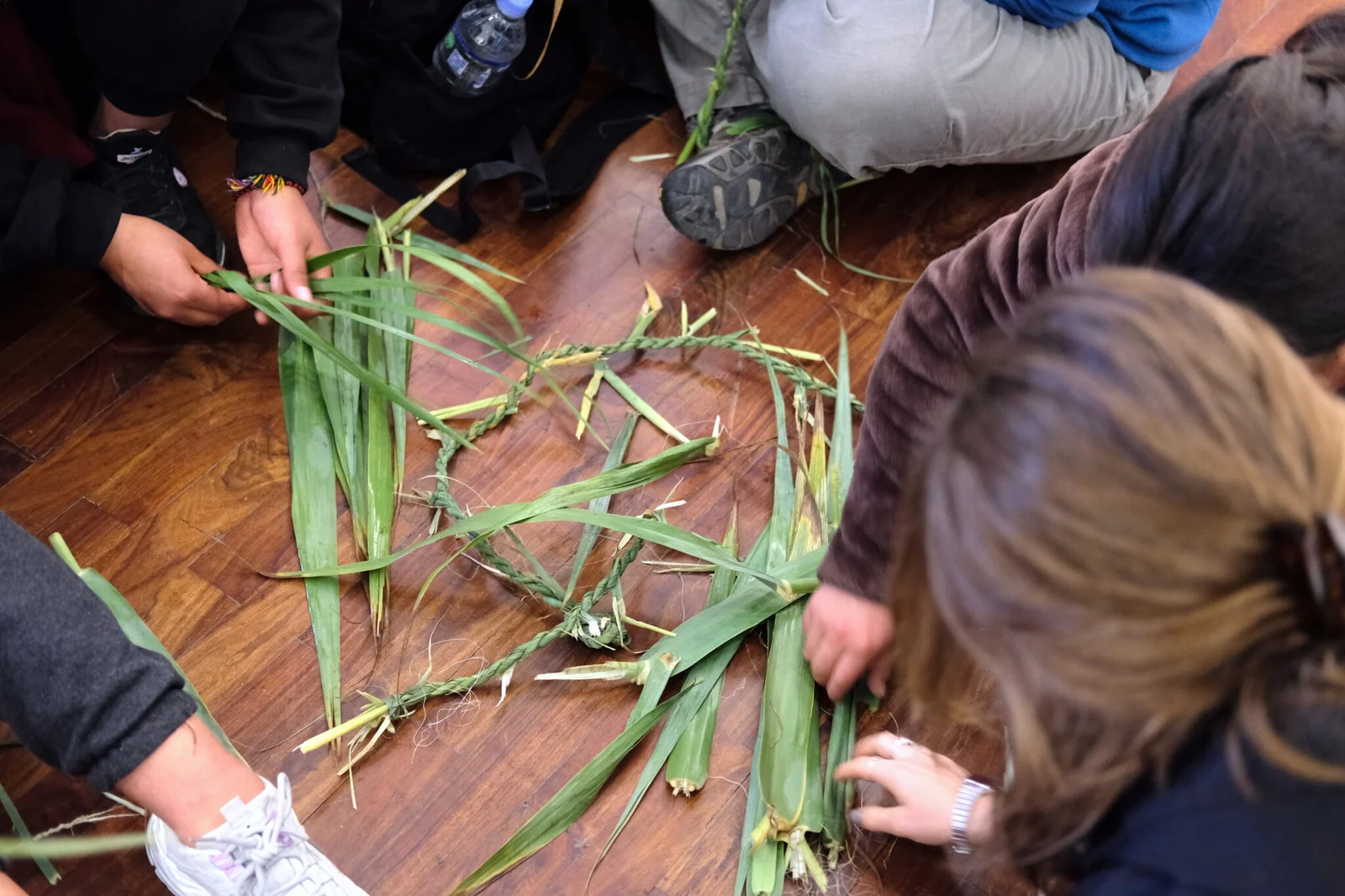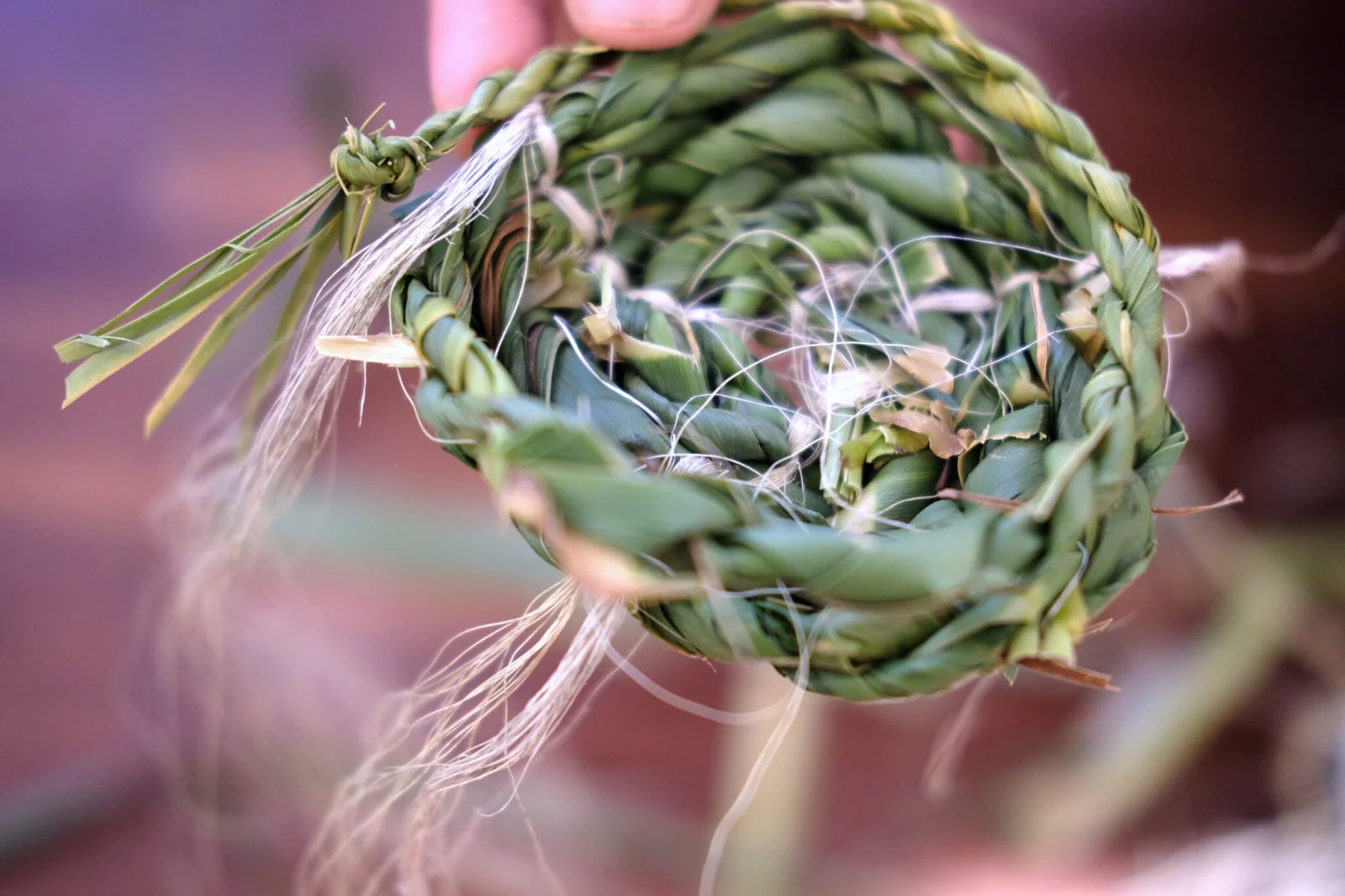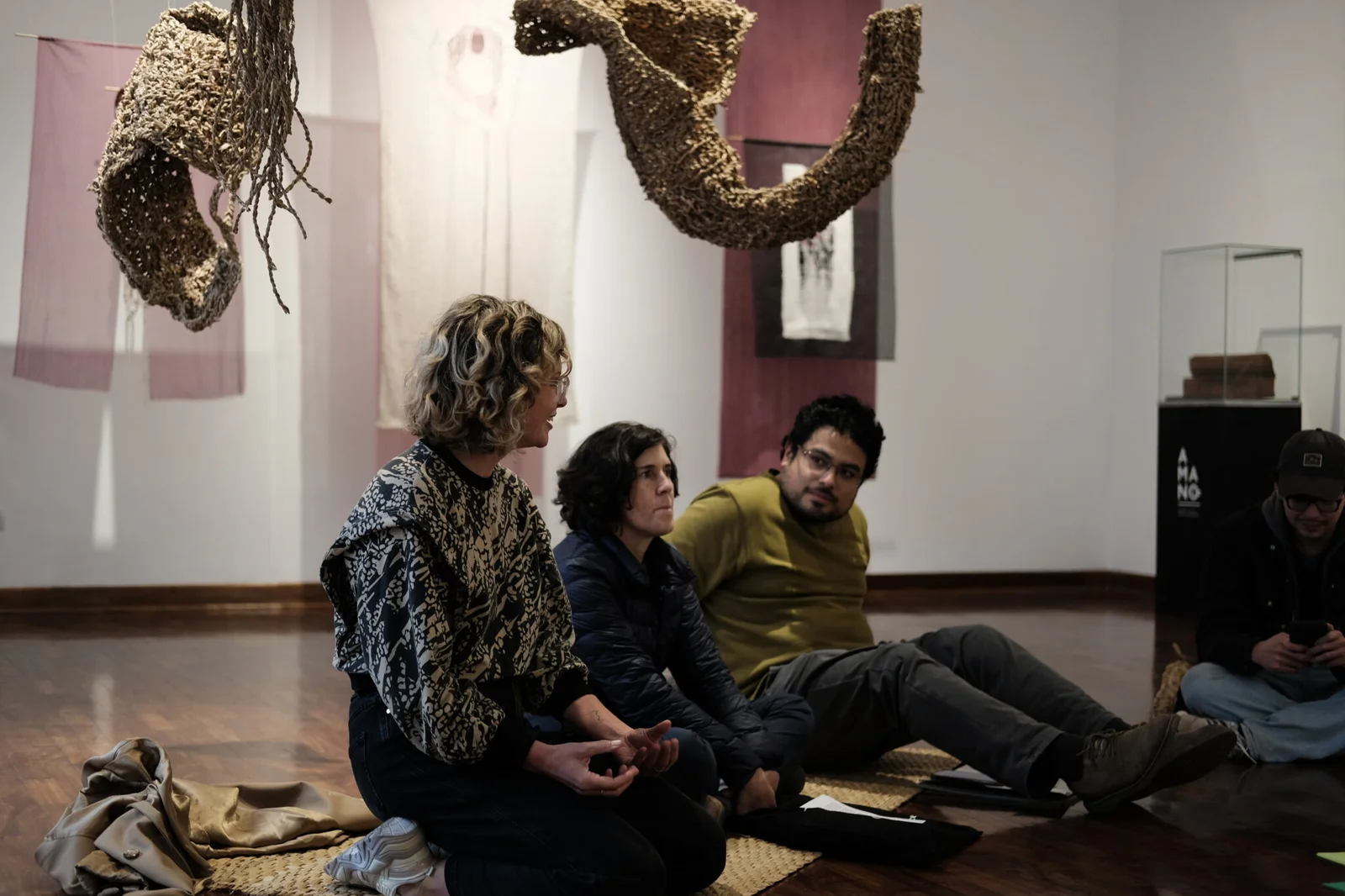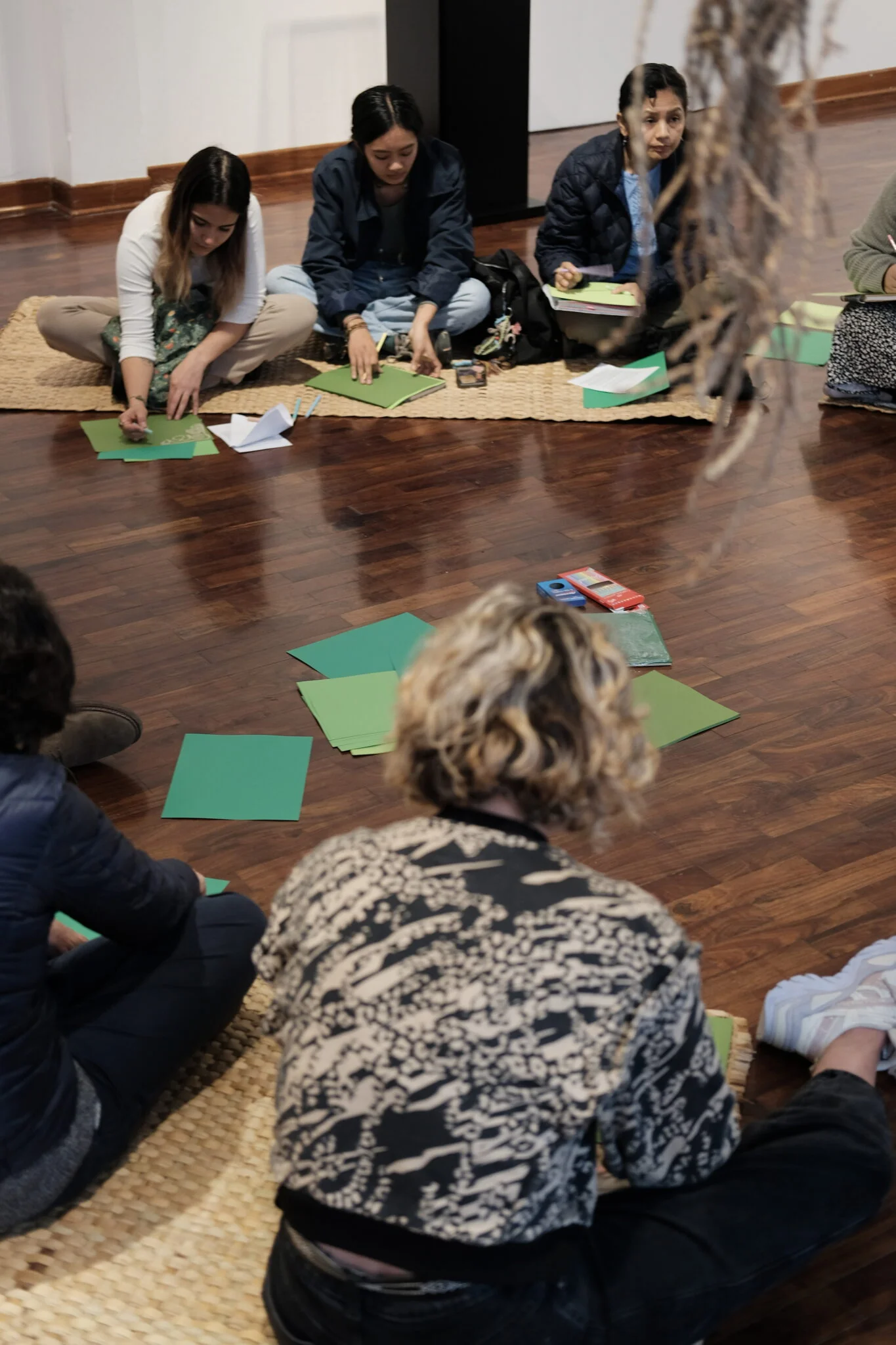I’ve been collaborating with Alejandra since we met in 2019 at the Faculty of Art and Design, at the Pontificia Universidad Católica del Perú. Over the years, Alejandra has developed artistic research for entre-rios.net and collaborated in our arts-led participatory education, delivering weaving workshops with the Escuela de Pensamiento Ambiental y de la Paz Humedal El Charquito (2021), for the “Modos de Habitar” module of our digital seminar Culturas Hidrocomunes (2023) and for Towards a Post-Extractive Culture, Stedelijk Museum, Amsterdam (2023)
VISIT EXHIBITION WEBSITE ON ENTRE-RIOS.NET
Alejandra Ortiz de Zevallos, Carrizo ~ gestar la vida, Museo AMANO, Lima
July 5 – August 1, 2024
What can we learn from a plant? What will it transform in us, if we take it in our hands and weave it over and over again?
The botanical philosopher, Emanuele Coccia, reminds us that plants “plants have no hands with which to manipulate the world, and yet it would be difficult to find defter agents for the construction of forms.” They are the “most subtle artisans of our cosmos” —by creating the atmosphere and filling it with oxygen, they enable breath and with it, the reproduction of life.
Plants, breath, hands, forms. These are the basic ingredients of the collaboration that Alejandra Ortiz de Zevallos has cultivated over the past years with Phragmites australis, the water plant we know as the common reed.
This plant is so common that it is often overlooked or, worse, considered “invasive.” Yet, it weaves worlds that span vast scales and timeframes. Generous and gregarious, it gathers together to sow water and signal its presence, and even to absorb pollutants. Resilient and enduring, it knows how to give structure to buildings, woven baskets and communities.
In this exhibit, we are immersed in the intimate dialogue that Alejandra nurtures with the common reed by harvesting, washing and braiding its leaves. Using the q‘eswa technique, she builds bridges to ancestral knowledge worlds that weave healthy, reciprocal relations with ecosystems. She threads the teachings offered by the plant through other mediums, creating images and textiles whose organic forms evoke fertility and biological processes that sustain us.
Her sculptures are thus born of a subtle dance in which Alejandra weaves while attending to how the fibers themselves want to incarnate, allowing the emergence of different forms – tubes, curves, cocoons… And, the drawings’ fluid lines and the cotton textile works’ fraying threads evoke the tissues of bodies and embryos, articulating the pulse and continual metamorphosis of all life.
Moving between different scales —from microcosm to ecosystem— these works invite us to explore continuities between water, plants, earth and people to reflect on how our lively commons gestates and how it can be nourished.
Lisa Blackmore
Installation Views
Public Program
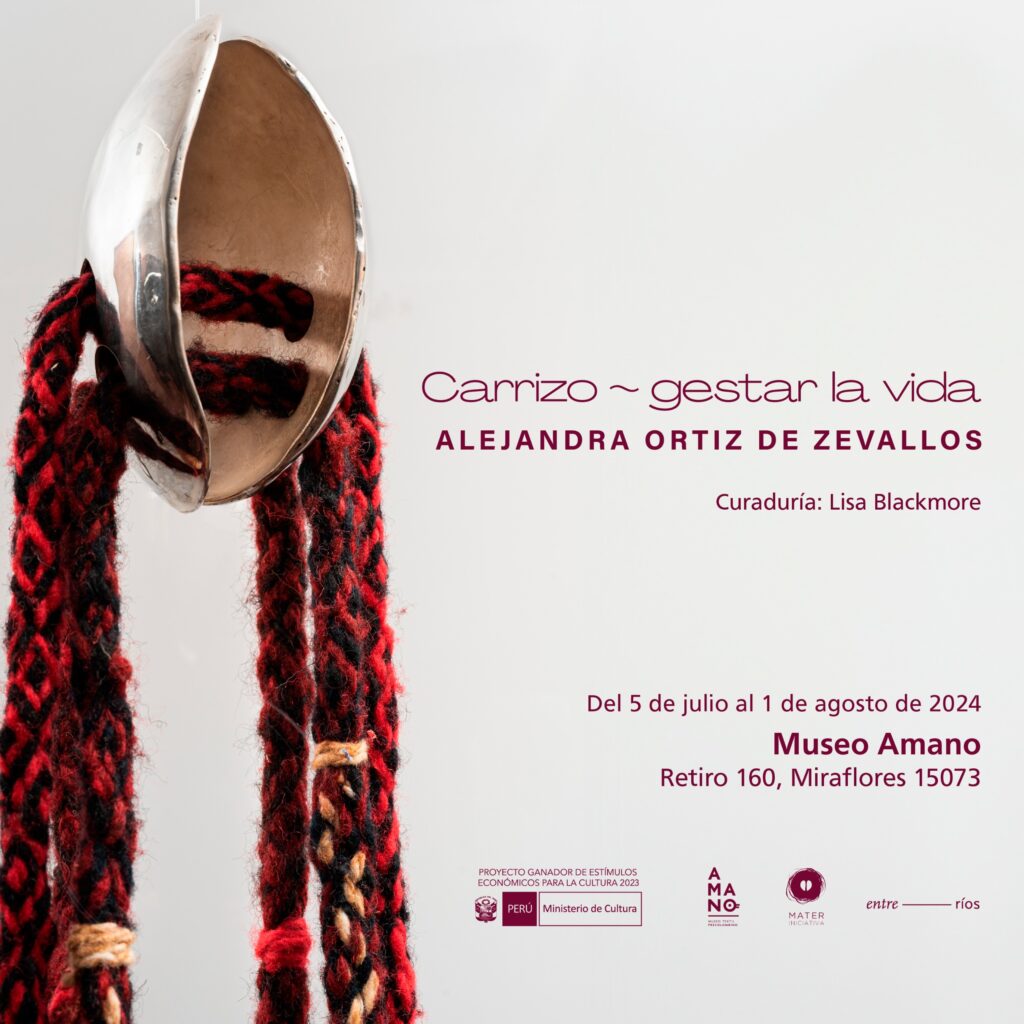
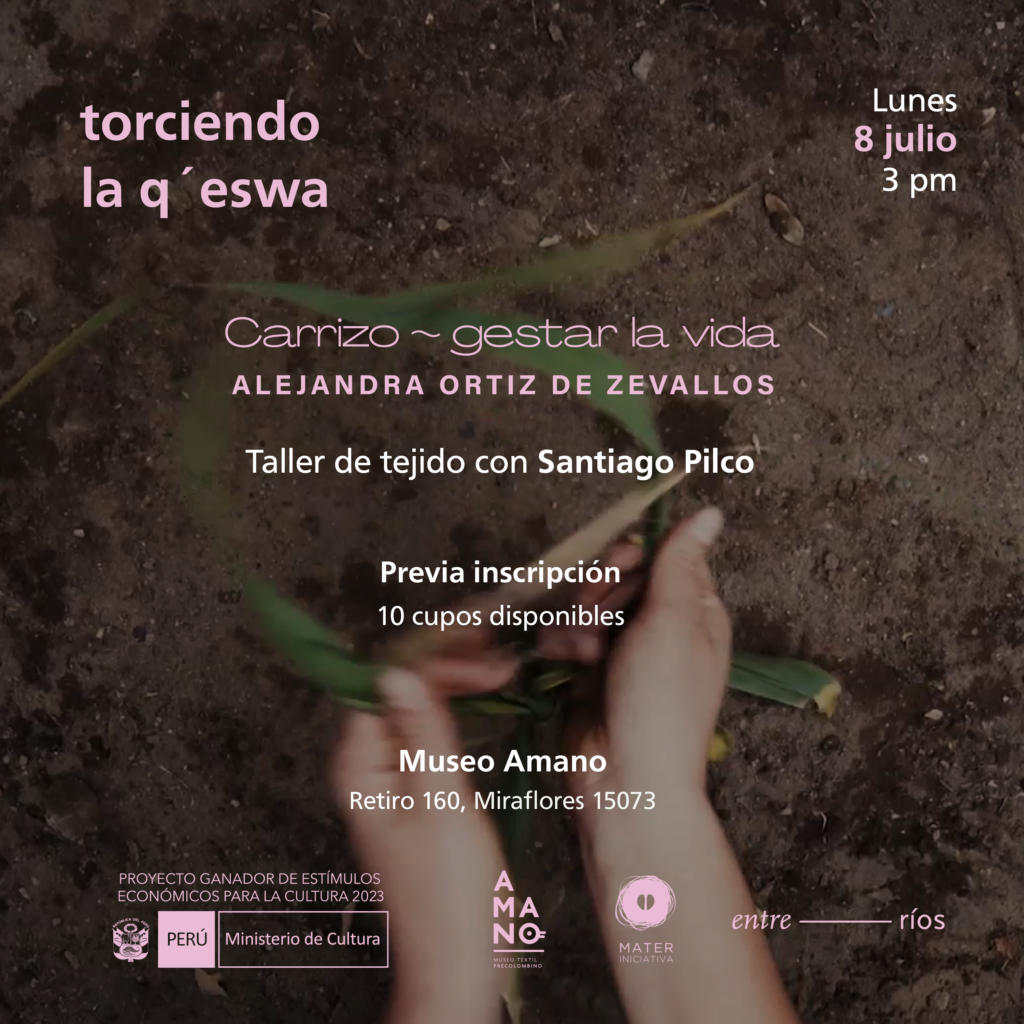
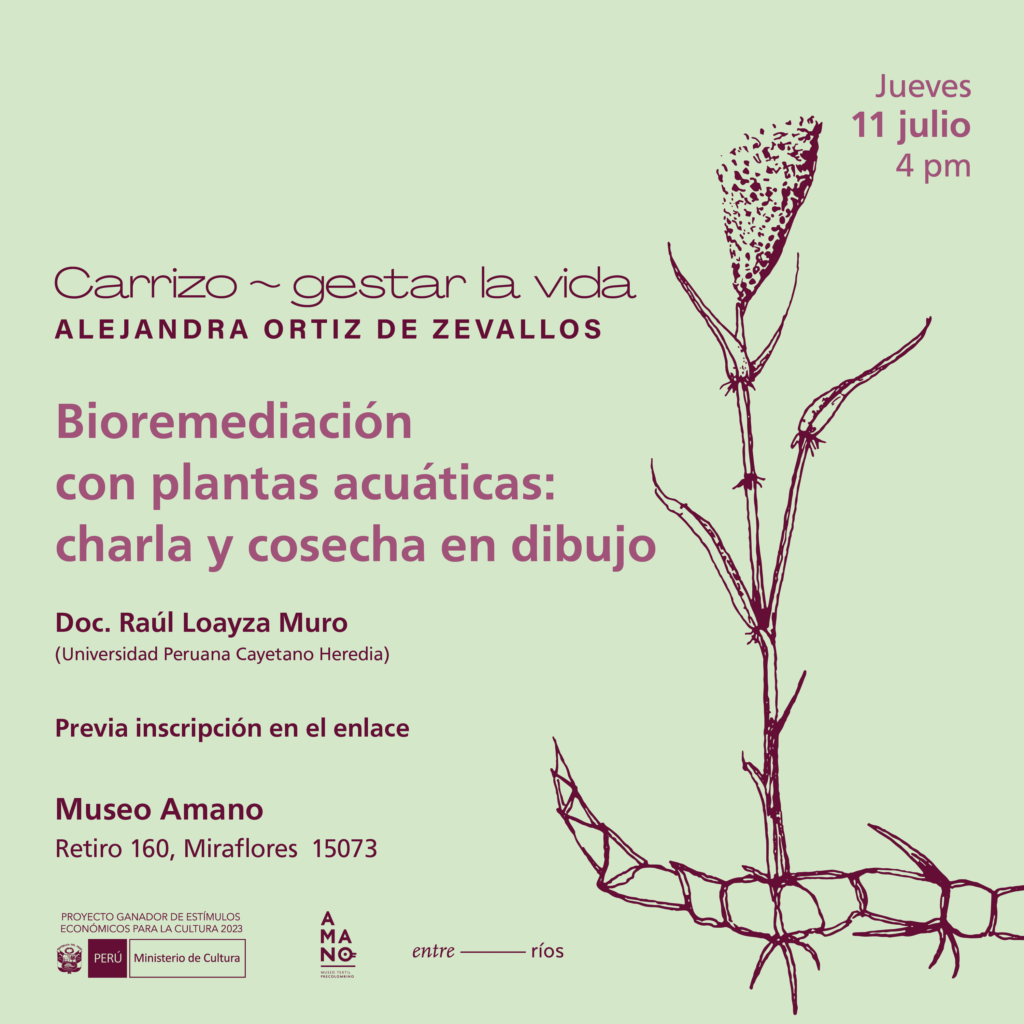
Weaving workshop with Santiago Pilco
Bioremediation “harvesting” workshop with Prof. Raúl Loayza-Muro
Prensa
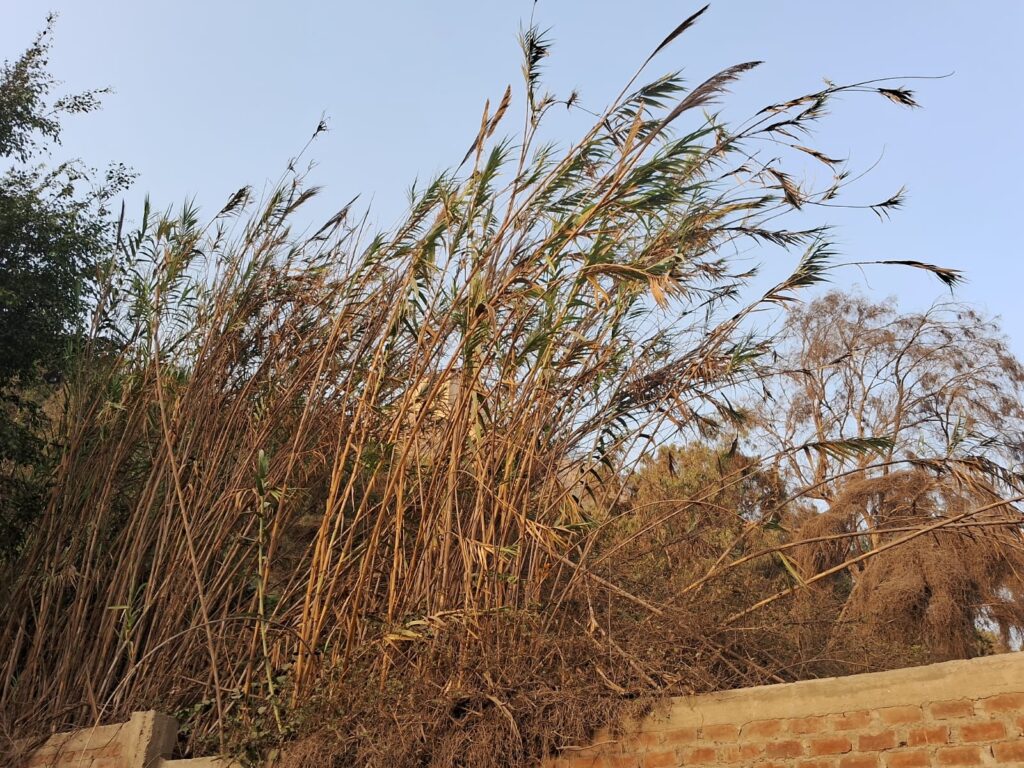
El carrizo, una planta para multiplicar los encuentros
Revista Endémico, 24-06-2024
Alejandra Ortiz de Zevallos, Lisa Blackmore, Raúl Loayza-Muro
Read here
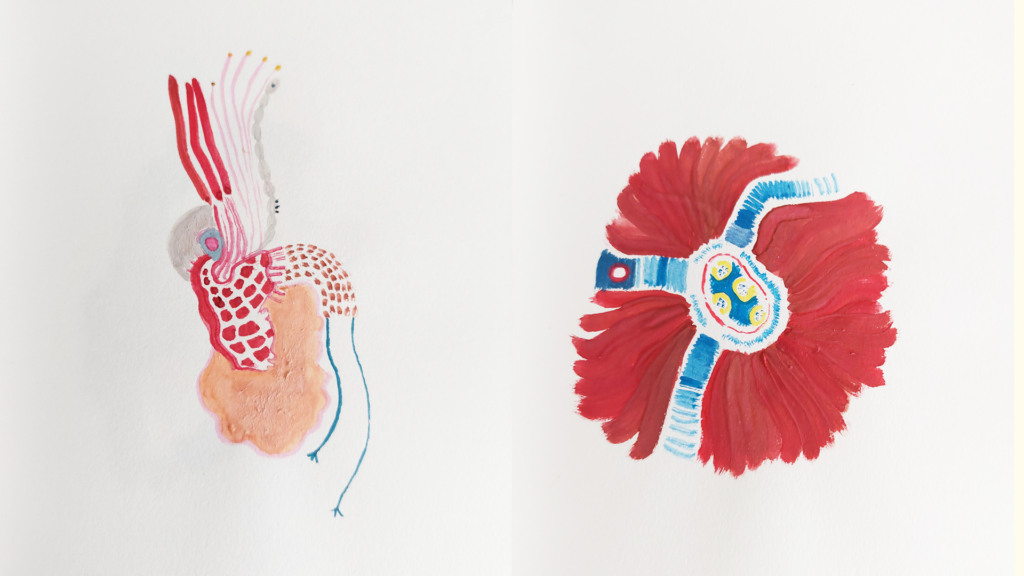
Alejandra Ortiz de Zevallos, Carrizo – gestar la vida
Revista Artishock, 07-08-2024
Alejandra Ortiz de Zevallos, Lisa Blackmore, Raúl Loayza-Muro
Read here
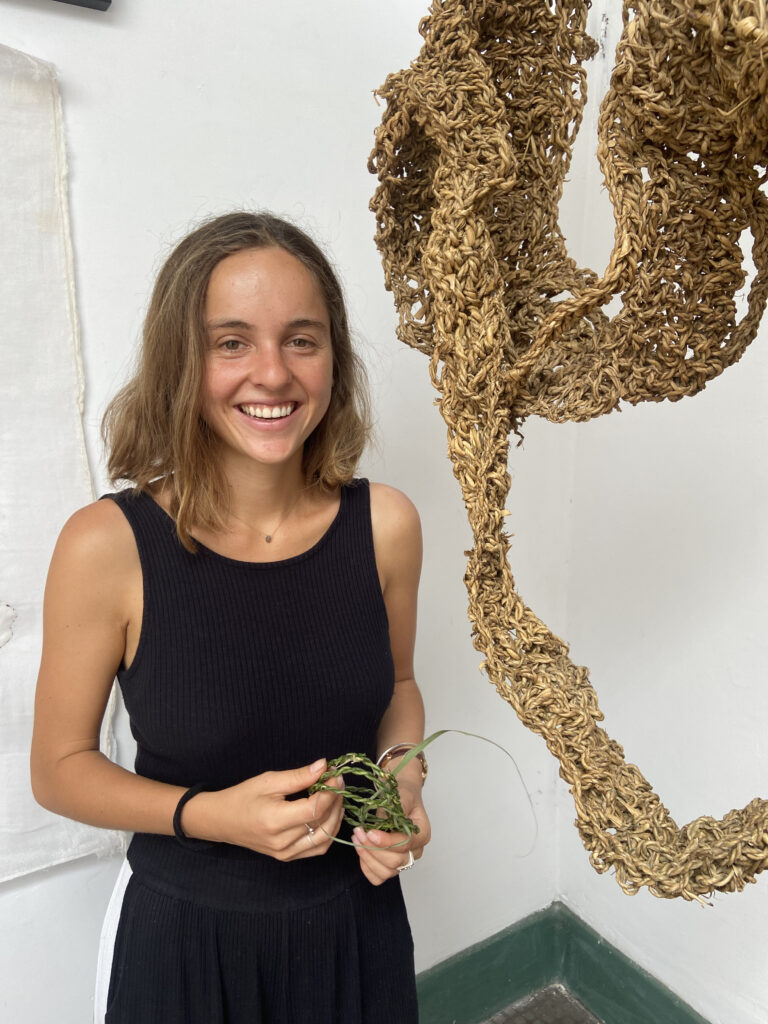
Alejandra Ortiz de Zevallos (Peru)
Alejandra studied sculpture at PUCP and earned an MFA degree at the University of New Mexico. Through her textile work she explores the symbolic language of unity, interaction and reproduction. Her work addresses topics such as the creation of life, the dependencies of organisms and the relationship between humans and the environment. She also leads workshops on natural fiber braiding, drawing on traditional techniques learned during Ella Mater 2020 residency in Moray, Cusco. Her work has been exhibited at the Lima Art Museum, PaRC PINTA 2022 and 2024, Galería del Paseo, La Mancha, Wu Galeria, CCPUCP, Lagos in Mexico City and JCAF in Johannesburg. In 2022 she received Honorable Mention in the XII National Painting Contest of the BCRP and in 2023 she was a beneficiary of the Economic Stimuli for Culture. Her research is part of the Future Materials Bank and she is also a member of the Ensayos and entre—rios collectives.
